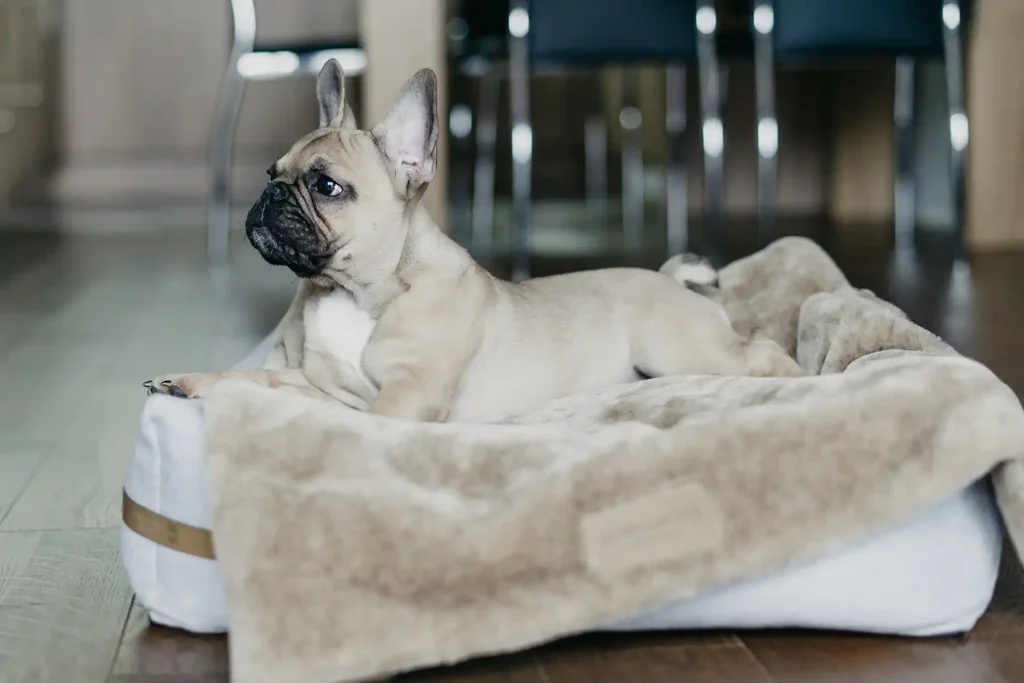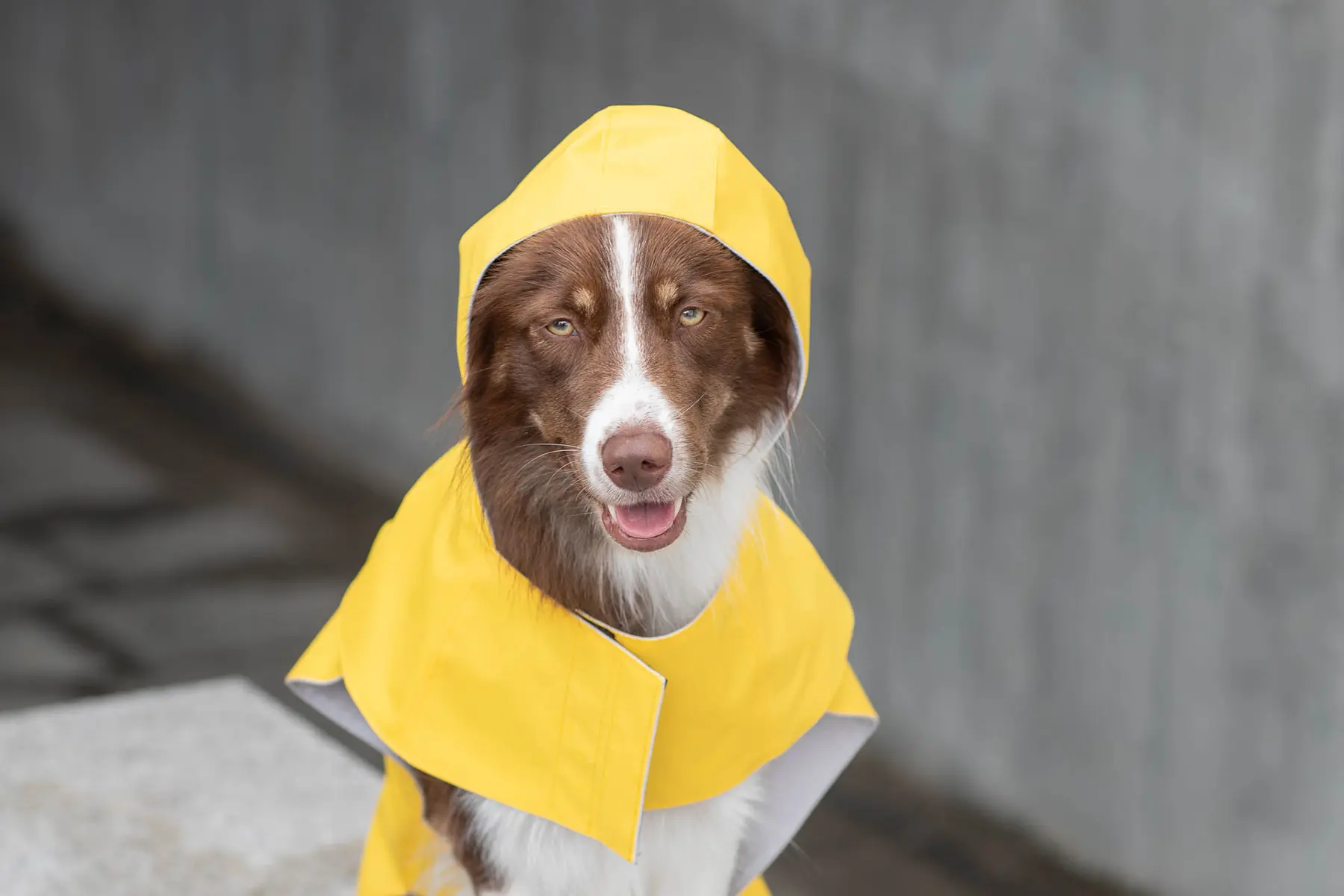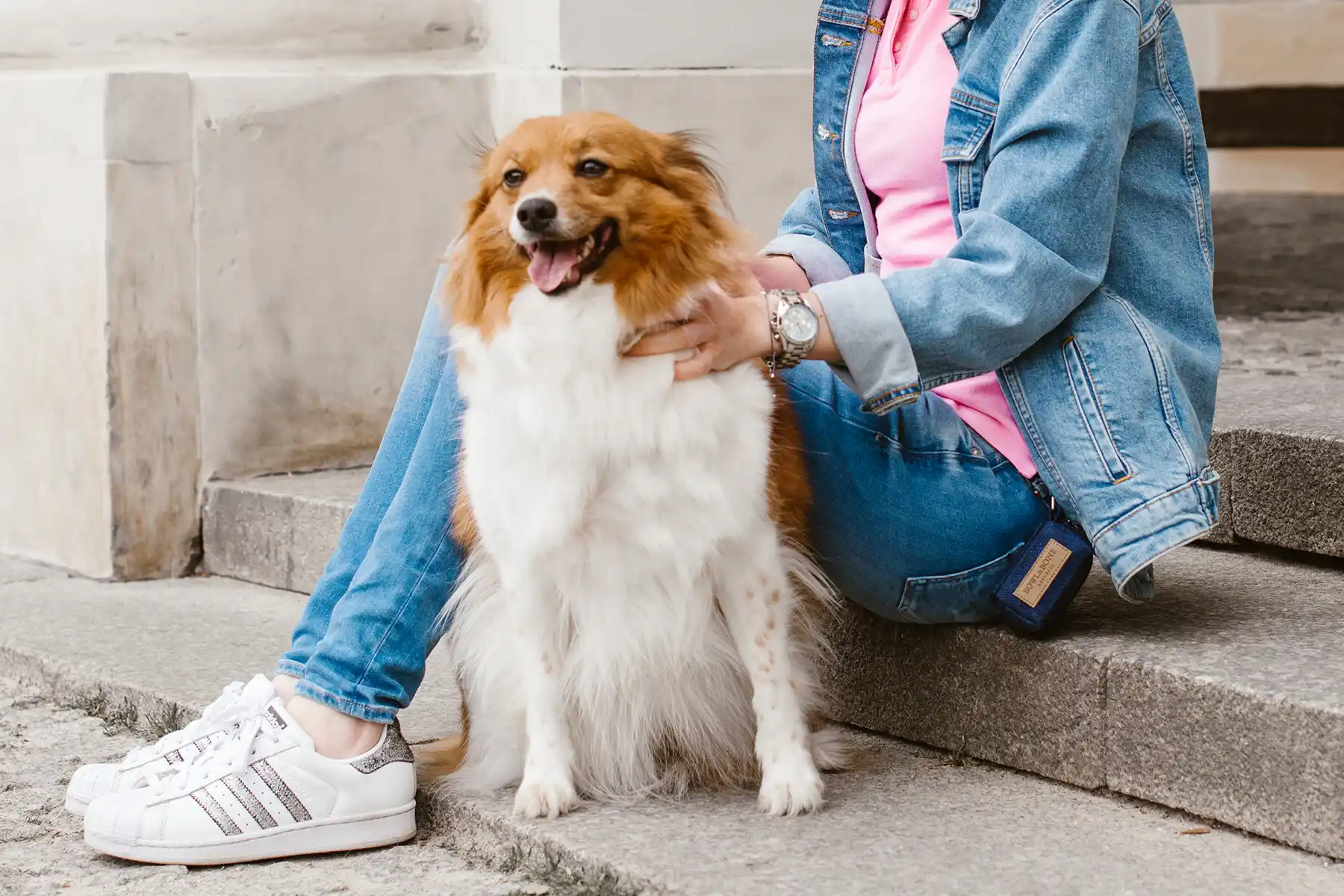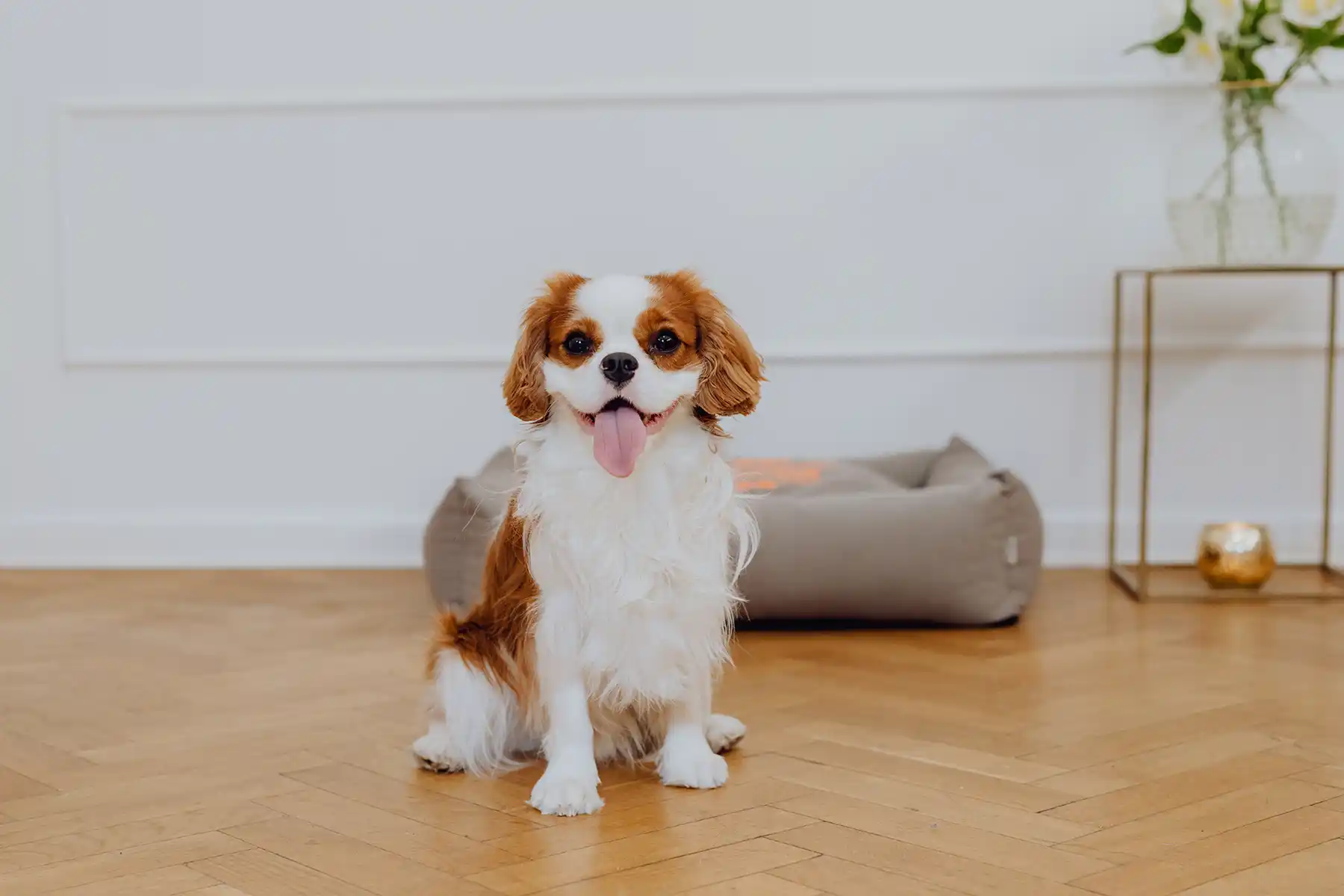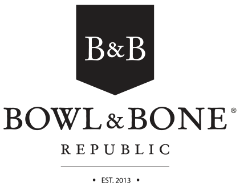Fear of the loud sounds of household appliances accompanies many dogs in their everyday lives. It doesn’t have to be that way. As dog guardians, we can help our pets tame them with typical home sounds and thus save them a lot of unnecessary stress and anxiety.
If you want to tame your dog with loud noises in your home, you must not show him sympathy because, in this way, you reinforce the legitimacy of his fear. Do not isolate the dog from these devices; let him fully get used to them and get accustomed to their presence. A dog’s fear of the unknown is much more annoying and absorbing.
What you will learn from this article:
• Dogs are much more sensitive to sounds than humans
• You should not isolate your dog from loud household appliances
• Get your dog used to household appliances that can make loud noises
How to tame your dog to loud noises
You should know how to tame your dog to loud noises. Dogs have a very developed sense of hearing. They hear much more and better than humans. Although it would seem that excellent hearing is the only advantage, unfortunately, in everyday life, it turns out that there are situations in which it is a nuisance for dogs.
My dog doesn’t like loud noises. You can see that he feels fear and anxiety then. It soon turned out that his reluctance also applies to typical household sounds, which in his perception, are too loud, strange and violent.
A vacuum cleaner is one of the household appliances that my dog dislikes. I am sure that every dog guardian knows this topic well. Therefore, our task is to tame the dog with loud sounds in the house.
Unfortunately, many dog owners do not try to deal with this problem in any way, which is a big mistake. Why should your dog feel fear and anxiety caused by house sounds? I don’t think it’s like your dog has to get used to the noise on his own. As a dog guardian, you should ensure your pet feels as good as possible in your home.
Why does a dog hear so well?
Why are dogs so sensitive to noise? The hearing aid in dogs looks a bit different than in humans. In the case of low sound frequencies, our dogs hear on a similar sensitivity scale as you and me.
The situation is entirely different in the case of very high notes. Humans can hear sounds up to about 20,000 Hz. The hearing limit of high-pitched sounds in dogs is much higher, up to 65,000 Hz.
So as you can see, your dog hears many more high-pitched sounds than you do. The difference is enormous. That’s why people sometimes find it hard to understand the seriousness of the situation regarding dogs’ fear and discomfort when they hear a noise. You and I cannot experience the same sound experience as our dogs.
Unfortunately, dogs’ ability to hear very high-pitched sounds is more of a problem than an advantage in many cases of everyday life.
Does every dog react badly to loud noises?
Reaction to noise is a very individual matter for each dog. Not everyone will react the same way to high-pitched sounds from the environment. Some dogs are more sensitive to noise than others. That is not due to the different construction of their hearing aids but their sensitivity to loud sounds.
Even a relatively small noise can cause tremendous anxiety and fear for some dogs. Situations in which they are close to the source of loud noises are very stressful for them.
On the other hand, there are also dogs for whom louder sounds are not a source of fear. That does not mean that there is something wrong with the hearing of such a dog. It is simply due to the nature of the student, how he reacts to the world around him and what causes him anxiety and discomfort. That’s why it’s essential to know how to get your dog used to loud noises.
Dogs afraid of deafening noises
Why do I want you to know all this? Because a dog is not equal to a dog. The fact that one dog will respond well to the sounds of a thunderstorm or even a vacuum cleaner does not mean that everyone will approach this situation the same way.
In my family home, I grew up with a dog who was a real hero. He was not afraid of lightning or New Year’s Eve fireworks. Therefore, what was my surprise when in my apartment, I took care of a dog who, as it soon turned out, was afraid of the sound of even household appliances.
As a dog guardian, I tried to get my pet used to loud sounds as much as possible. I saw my dog’s discomfort when I started a vacuum cleaner or other slightly louder device. I did not want to leave my dog alone with this problem.
This way, you will learn how to tame your dog to loud noises
To help you get your dog used to the loud noises that may be present in your home, I have some tips for you. Some of them were difficult for me as a dog guardian, but their positive effects confirmed they were the right thing to do.
Show no sympathy for the dog
While he fully realizes that it is the unconditional instinct of any dog owner to show compassion when his pup is afraid, you need to behave differently in this case. Why? Because trying to comfort and reassure your dog can only make things worse.
Your dog, seeing that we also react to a given situation in some way, perceives it as confirmation of the validity of his fear. What’s more, it may even deepen his feelings of anxiety. In assessing the situation, your pet treats you as a role model, and it is on your behaviour that he bases his reactions to given conditions to a large extent.
Therefore, when you see that your dog is frightened by a sound that is in no way a threat to him, try to ignore it. I know it can be challenging for you, but you have to believe that it is essential to tame your dog to loud noises in the house.
Of course, I mean all those situations when your dog gets scared by the sound made by typical household appliances, such as a vacuum cleaner, dryer or mixer. The dog interacts with them daily, and they are a permanent part of your home life. It would be best if you learned to separate the situations when your pet is afraid of the sound of something that does not threaten him in any way and the event that his fear is fully justified.
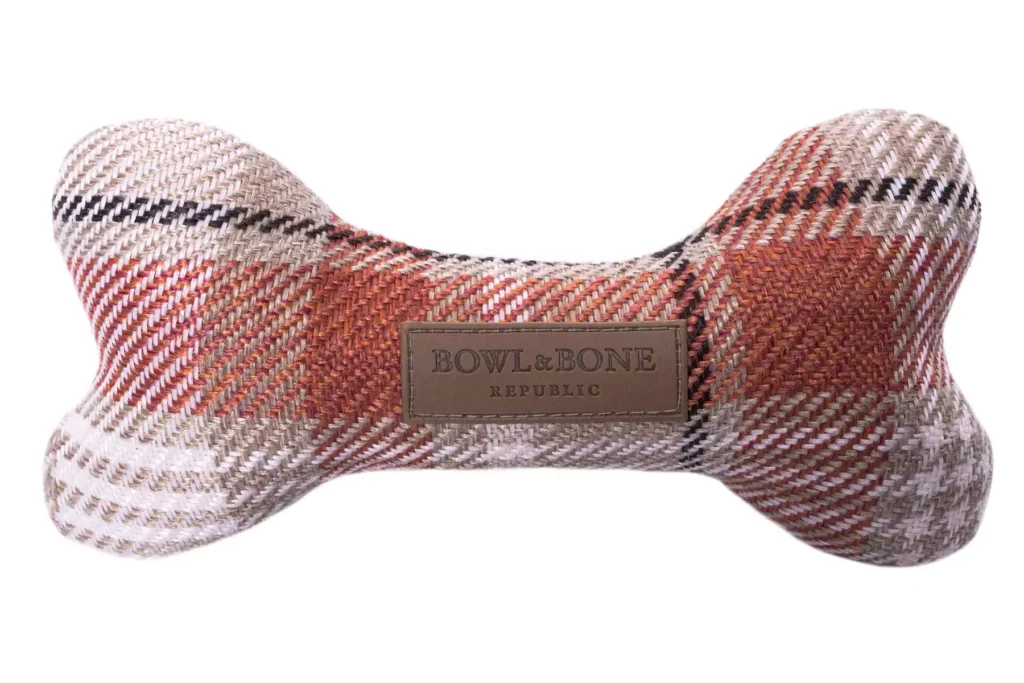
Dog toy |BONE orange
Don’t isolate your dog from loud noises
We often unconsciously reinforce the dog in the belief that his fear caused by the sound of a given home appliance is fully justified. That happens when knowing that the pet reacts poorly when vacuuming or using a blender, we isolate him in a separate room for some time.
Of course, I’m sure you do this because you want to protect your dog from unnecessary stress. Unfortunately, in this way, you make the sound for your pet something that his owner tries to protect against, so it is undoubtedly a real threat.
Fear of something unknown is a familiar feeling you know from your life. In this matter, the psyche of dogs works similarly. You reinforce that feeling by isolating your dog from something already making him anxious.
Getting the dog used to the sound source
A significant step in accustoming your dog to loud noises in the house is to familiarize him with the source of the problem. My dog, for instance, reacted by barking when he saw a vacuum cleaner, even if it wasn’t on yet. Therefore, try to get your dog used to the mere presence of specific things.
I will tell you about the example of my pet and how it looked in his case. My dog didn’t like the vacuum cleaner’s sound. Therefore, initially, I wanted to tame it a bit with the device itself. With the vacuum cleaner turned off, I made movements as if I were vacuuming. I took my dog with me on this pretend-to vacuum around the house.
I wanted the dog to get used to the device itself, which is a vacuum cleaner. He saw that it wasn’t meant to hurt him. I believe that this is crucial in overcoming the dog’s fear. When he gets used to the device’s presence, which has been hostile to him so far, you can gradually activate it, initially at the quietest speed and for relatively short moments.
Taming your dog with loud sounds will make everyday life easier for him
Undoubtedly, it is stressful for your pet to feel anxious about loud noises. Therefore, I believe it is essential for the dog’s well-being to show him that there is nothing to be afraid of.
Do not let the dog feel that he should be afraid of the sound of a vacuum cleaner, washing machine or dryer. Do not isolate him from these devices. On the contrary, try to get used to them. Thanks to patience and determination, my dog looks indifferent today when I start vacuuming the apartment.
And what about your dog? Is he afraid of the sounds of household appliances, or does he not pay much attention to them?
If you have any questions or want me to discuss a topic in the next post, share it in the comments section.




